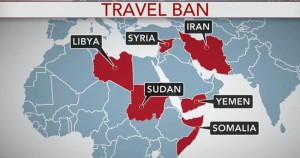
The United Kingdom’s Foreign and Common Wealth Office, (FCO) on 18th June 2019 issued a travel advisory to its nationals cautioning against visiting Turkey. The parts expressly advised against are those within 10 Kilometers from the Syrian border, North of Turkey.
Since the Brexit, Turkey is turning out to be the preferred summer holiday destination for most British nationals. The preference is not only attributed to Turkey’s five-star resorts but also to the political undercurrents surrounding Brexit that is making the Britons prefer to holiday destinations located in Non-European countries.
Given that the British Pound is weak when traded against the Euro, and it’s relatively higher when traded against other currencies such as the Turkish Lira. Holiday destinations in Eurozone countries are therefore not financially sound due to the use of the Euro as opposed to those in Non-European countries. By avoiding Eurozone countries and the use of the Euro, the British nationals make most of their currency while still getting the best of the holiday experience.
Turkey has benefitted most from the Briton’s shift to Non-European holiday countries destinations. Statistically, in the year 2018 alone, Britons made over 2.3 million visits to Turkey, and the number is expected to double this year more than.
However, the border fights between Turkey and Syria, the heightened risk of a terrorist attack in Turkey and the travel advisories casts a dark shadow both on the country and the Briton holidaymakers.
Turkey-Syria border fights
Following the July 2016 attempted coup in Syria, on 24th August 2016, Turkey commenced its Military operation in Syria dubbed Operation Olive Branch. The military incursion is to help the Syrian government stabilise by squashing rebels that had attempted to overthrow it. The rebels are mainly pro-Kurdish and sympathisers of the left-wing political parties.
Since the operation began, war crimes such as indiscriminate shelling, use of chemical gas and random shooting have been committed. Civilians and non-citizens alike have succumbed to these actions, as collateral damages, as with any war.
The Turkish military, as a result, has declared villages along the Turkey-Syria border in Gaziantep province an exclusive security zone leading to the Foreign and Common Wealth Office’s travel advice to Britons to avoid the areas.
The threat of Terrorist attack
In retaliation to the Turkish intervention in Syria through the military operation, Terrorist groups continue to plan and carry out terror attacks in Turkey. The terrorist groups are mainly composed of pro-Kurdish groups, pro-Daesh and sympathisers of the left-wing political organisations. Their attacks are indiscriminate and spontaneous all over turkey.
The terrorist groups have previously mounted terror attacks in Turkey. These attacks were in the southern and eastern part of turkey and, in Ankara and Istanbul despite the military operations being in the Northern part of Turkey. And Syria bordering Turkey to the north.
Without knowledge of the place where the terrorist will attack next and the indiscriminate nature of the attacks, British nationals stand cautioned against going for their vacation in Turkey. The caution is as a result of unconfirmed fears that citizens from western countries may be targets or may be caught up in the attacks, especially if the terror attacks were to take place in major cities as those are the places frequented by those vacationing.
Given that turkey is yet to withdraw its military from Syria and call off the Operation Olive Branch, these terrorist threats continue to be real and is to increase in the foreseen future. These fears are not misplaced given that the attacks are a response to their presence in Syria by proponents opposing the Syrian government
Specific areas to avoid
The United Kingdom’s Foreign and Common Wealth Office through its spokesperson and on its official website specifically flagged out particular regions of Turkey to avoid. Provinces of Diyarbakir, Tunceli, Hakkar, Sirnak, Hatay and Kilis including the city, are to be avoided.
These flagged out area are those within the security zones created by the Turkish military. The places proximity to the war makes them susceptible to air strikes, shelling, shooting and even poisonous chemical gas. These acts of war are large scale in nature and are likely to hurt those targeted and those not targeted provided on is in the vicinity affected.
Social facilities in turkey or areas that hold large numbers of people at a time in significant towns in Turkey such as Stadiums, public parks and amusement parks is a terrorist target. These areas that have large amounts of people at any specific times are a favourite for terrorists. The terrorist is assured of massive casualties and global attention if they carry out a successful terror attack in such an environment.
While avoiding the individually listed areas in Turkey protects Britons from being potential casualties of the war in Northern Turkey, avoiding crowded places protects the British national from being possible casualties of retaliatory attacks from terror groups opposed to the war in the Northern part of Turkey.
These travel advisory against Turkey by the United Kingdom comes at a time Britons are gearing up for the summer holidays.

Leave A Comment